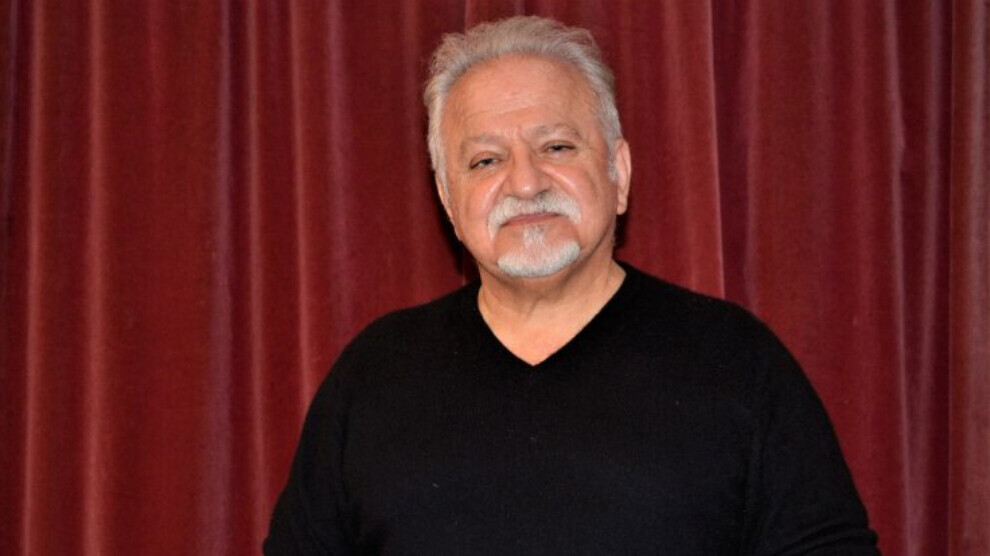Prof. Dr. Abbas Vali: Disarmament must be a result, not a condition
Prof. Dr. Abbas Vali said that disarmament can only follow concrete steps by the Turkish state, including the freedom of Abdullah Öcalan.
Prof. Dr. Abbas Vali said that disarmament can only follow concrete steps by the Turkish state, including the freedom of Abdullah Öcalan.

Abdullah Öcalan’s historic “Peace and Democratic Society” call on 27 February was soon followed by the 12th Congress of the Kurdistan Workers’ Party (PKK), where landmark decisions were made regarding the democratic resolution of the Kurdish question. These congress decisions continue to echo not only across Turkey, Kurdistan, and the wider region, but also on the international stage. Commentaries from the global public have welcomed the PKK’s approach, stressing that this historic step toward a peaceful and democratic solution to the Kurdish issue must be treated with seriousness by the Turkish state.
Professor Dr. Abbas Vali, a Middle East expert widely recognized for his work in the region and especially on the Kurdish people, talked to ANF about his assessment of the process.
The first part of this interview can be read here.
The PKK has fulfilled its objective
Professor Dr. Abbas Vali pointed to the relevance of Mr. Öcalan’s arguments regarding the end of the armed struggle. Vali said, “The armed struggle against Turkey has gone beyond its original purpose and has run its course. It had a clear goal and that goal has already been achieved by the PKK. This armed struggle could continue for a long time, but it would serve neither the Kurds nor the Turkish state. Neither the Turks, nor the PKK, nor the broader Kurdish movement can win this war by military means. Even if it continues for another 20 years, no side will emerge victorious. We must also not forget that the geopolitical dynamics in the Middle East have shifted, and these changes demand new responses.”
Disarmament cannot be a precondition for peace
Professor Dr. Abbas Vali stated that while there is a clear and growing commitment among Kurds to engage in a civil and democratic political process, the Turkish state has failed to take steps in line with the spirit of this process and said, “There is now greater willingness and acceptance among Kurds to participate in peaceful and democratic politics. The Kurdish side has made many efforts, yet these steps have not been reciprocated by the government. From my perspective, halting armed struggle and disarmament are two distinct concepts. Armed struggle can be suspended and this is in fact what has been done. But disarmament, meaning the complete laying down of arms, is something entirely different. Disarmament should be the outcome of negotiations, not a prerequisite for them. The Turkish state insists on disarmament as a condition to initiate negotiations, steps such as opening a political process, legitimizing the PKK, and engaging it within a new framework. In my view, asking for disarmament without any commitment from the Turkish state, as a requirement to begin a political process, is not the right step.”
The Turkish state must take concrete steps
Professor Dr. Abbas Vali emphasized that disarmament must be tied to specific commitments from the Turkish state, including the freedom of Mr. Öcalan. He said, “As I mentioned, the reasoning behind halting the armed struggle is valid. However, the next step in this process, disarmament, requires clear commitments from the state. These include the release of Abdullah Öcalan and the opening of a genuine political process.”
The movement must be preserved
Professor Dr. Abbas Vali also underlined the vital importance of continuing the political struggle even if the Kurdish Freedom Movement ends its armed resistance. He stressed the need to safeguard the movement itself: “The movement is more important than ideology. It is more important than any other single factor. The movement must be preserved. Under current conditions, the strategic goal of the Kurdish movement in Turkey should be to ensure the protection of this movement. Even if it evolves into a purely political structure, that priority must remain unchanged. The movement must be protected at all costs.
Without the movement, neither the leader nor the ideology retains its meaning. The top priority right now must be to safeguard the movement. And to achieve that, a new and more effective negotiation process with the state is needed. The state must be persuaded to produce positive political solutions. We are in a new political phase. New diplomatic initiatives are underway, and the Kurdish movement is entering a period of reorganization and reconstruction. This new situation also places a new responsibility on the movement’s leadership (Abdullah Öcalan): transitioning from a military structure to a political one is one of the most difficult tasks in politics. We have seen this in South Africa, in Vietnam, and elsewhere. Therefore, to carry out a successful transition from a military-political organization to a political one within Turkey, the movement must first restructure itself. The core purpose of this restructuring should be to preserve the movement. As I said: nothing is more important than this movement.”